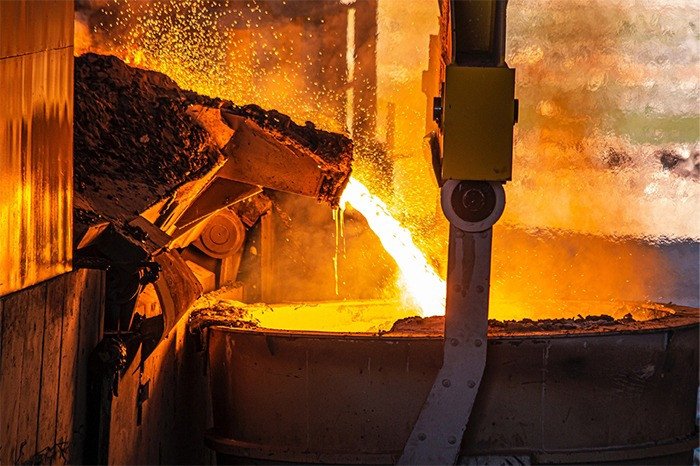The South East Asia Iron and Steel Institute (SEAISI), announced recently that Indonesia’s steel industry experienced positive growth in 2021 amidst the challenges of COVID -19 which still threatens the industrial sector around the globe.
Based on data from the Government Bureau of Statistics Indonesia (BPS), Q3 of 2021 showed above 9.82% growth, which was supported by exports of steel products to the tune of USD 19.6-billion in November 2021 and a surplus of USD 6.1-billion.
The positive growth of the steel sector in Indonesia certainly cannot be separated from the control efforts carried out by the Government. The Ministry of Industry (Kemenperin) represented by the Director of Metal Industry, Directorate General of Metal, Machinery, Transportation Equipment and Electronics (ILMATE) Industry, Budi Susanto said that the positive growth of the steel sector was due to control efforts carried out by the government with the concept of Smart Supply Demand, which was implemented by prioritizing the national steel industry from the upstream sector to the downstream sector. This growth was also influenced by the increase in steel demand supported by the automotive PPnBM policy, which grew to 27% in Q3 of 2021.
“It is important that the products that have been produced domestically can be maximized. And almost all existing imports are raw materials for various types of industries,” said Budi Susanto in his statement.
In line with this statement, The Indonesian Iron and Steel Industry Association (IISIA) reported that investment in the steel sector in 2021 was recorded at USD 12-billion, and is estimated to increase to USD 15.2-billion and IDR 215-trillion in 2022. This is, of course, related to the increase of national steel demand as well as increasing exports, especially in the downstream steel sector.
The consequence faced by the development of the steel industry in Indonesia today is the availability of raw materials to maintain the investment in the country. Problems occur in the upstream industry, especially carbon steel, which is still unable to meet Indonesia’s domestic needs.
Commercial Director of Krakatau Steel, Melati Sarnita said that based on data from the Government Bureau of Statistics Indonesia (BPS), there was a 23% increase in steel imports from 3.9-million tons in 2020 to 4.8-million tons in 2021. However, some experts consider that the use of the 2020 data is irrelevant given the condition of the industry in Indonesia at that time, which was badly affected by the Covid-19 pandemic. When compared with 2019 data, which is still considered more relevant, steel imports in 2021 compared to 2019 experienced a fairly good decline, namely from 6.9-million tons in 2019 to 4.8-million tons in 2021 or a decrease of 31%.
In addition, the increase in the volume of steel imports was also influenced by unfair trade practices by dumping and shifting tariff posts. Melati conveyed that the largest increase in steel imports occurred in Cold Rolled Coil (CRC) products by 70% or around 1.5-million tons in 2021, which previously was only 881,000-tons in 2020. Meanwhile, imports of other products such as Hot Rolled Coil (HRC) increased by 16%, and Coated Sheet steel products reached 18%.
Indonesia is still an importer of carbon steel from world steel exporting countries. Steel imports are projected to be the second largest non-oil and gas import commodity in Indonesia. As stated by the Executive Director of the Research Oriented Development Analysis (RODA) Institute, Ahmad Rijal Ilyas, the government has compiled several programs to control imports, namely:
- Import substitution program, including a reduction in the value of imports for some steel products
- Program to increase the use of domestic products (P3DN)
- The application of mandatory SNI in order to protect domestic customers from steel products that are of less quality
- Providing incentives to encourage increased investment in the metal industry sector.
- Steel producers in Indonesia expect that apart from the programs that have been prepared by the government, it is necessary to tighten import permits, especially for steel products that can be produced domestically. The continuous increase in imports of course can disrupt investment for the steel sector in Indonesia.
Sources: South East Asia Iron and Steel Institute (SEAISI), Indonesia Ministry of Industry Press Release, ANTARA News, CNBC Indonesia News, Tribun News, Liputan 6 News


